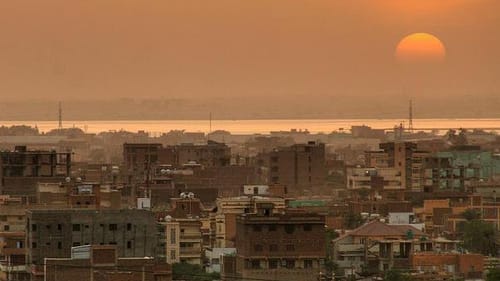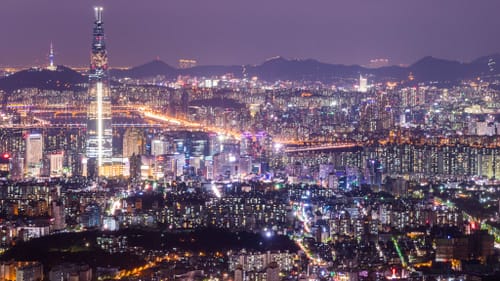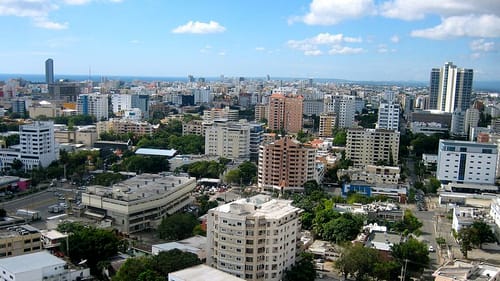Stay in the Loop
BSR publishes on a weekly schedule, with an email newsletter every Wednesday and Thursday morning. There’s no paywall, and subscribing is always free.
“What is Philadelphia?”
Three immigrants to Philadelphia share their journeys, and what the city means to them

As Philly continues to welcome asylum-seekers arriving on buses from Texas, it’s good to remember that we’re already a city of immigrants. According to the latest US Census numbers, a little more than 14 percent of Philadelphians (roughly 225,400 people) are immigrants, including three who recently spoke with BSR: Alba from the Dominican Republic, Hussein from Sudan, and Song from South Korea. They share their journeys with us, and why they’re proud to call Philly home.
“When I first came to Philadelphia,” Hussein remembers, “it was so hot, and I was so happy to be here.”
Hussein has been in Philadelphia for about three and a half years, since leaving Sudan. Before he arrived in the city, he didn’t know where he would end up; he just knew he would be going somewhere in America.
“Later,” he says, thinking about his long journey from Sudan to Beirut to Egypt to New York to, finally, Philadelphia, “I asked myself, ‘Why didn’t I ask the organization where I am going?’ The same day I went [to leave Sudan], I found out. The problem is … they told me the name [of the city], but my English was so bad I couldn’t understand reading or writing.”

Alba, who moved to New York from the Dominican Republic before moving to Philadelphia, had similar feelings of uncertainty. She’s lived in Philadelphia for about two years now.
“At first,” she explains, “I felt like I was getting too far away from what I knew New York was. And that didn't make me very happy because I was getting a little out of my comfort zone.”
Unlike Hussein and Alba, Song had been to Philadelphia to visit a few times before officially settling here, but that didn’t necessarily suppress her feelings of uneasiness.
“I was obviously nervous because this is totally a new country for me,” she says.
Song, originally from Mokpo, a small city in South Korea, lived in Seoul working as a public-school teacher for 10 years before moving to Philadelphia with her husband. She’s now lived in West Philadelphia for six years.
“I was a little bit scared because when I was in Korea, I saw a lot of the news involving guns, shootings … that kind of stuff. My first culture shock here was to hear or witness gunshots near my house,” she says.
“But sadly, or somehow, I just got used to it.”
Culture shocks
Gun violence and safety aren’t the only culture shocks Song has experienced since moving here. Healthcare costs are also complicated to understand in comparison to the national healthcare system she was used to in South Korea.
“Going to see a doctor is way more difficult here. The fees, the money, the insurance plans,” she says. “In Korea, we have national healthcare, so you don’t need to pick anything. It’s just right there.”

For Alba and Hussein, however, learning English and connecting with others are some of their biggest challenges.
Alba has friends in the Dominican Republic who are like her family, and not having them close by makes her feel like she hasn’t quite yet adjusted to living in Philadelphia. It’s also been hard for her to meet new people because of the language barrier.
Hussein feels similarly—particularly on days he would have spent with friends and family in Sudan.
“In Sudan,” Hussein explains, “the weekend is Thursday and Friday. The weekend starts on Thursday, and everything is closed on Friday, then everything opens again on Saturday.”
Fridays in Sudan are typically spent with family and friends.
“After we pray on Friday [in Sudan], I can stay with people and we can go on a walk or something … But on the weekend [in Philadelphia], I don’t have friends from Sudan here,” he says. “If I go somewhere, I go by myself … It's hard to look for people. I don’t know people and if I do have conversations, it’s hard sometimes. So, I just work on the weekend. It’s different.”
“What is Philadelphia?”
Despite his uncertain journey here, Hussein is happy now to be able to share the beauty of the city he’s gotten to know with people back in Sudan.
“A lot of people [in Sudan] don’t know about Philadelphia,” he says. “They know New York, Washington, California. They ask me, ‘What is Philadelphia?’ They have no idea.”
Before he arrived, he didn’t know much about the city either. But after spending time at the library and the National Constitution Center, he quickly understood the city’s importance in American history.
“I tell them Philadelphia has a big history in America,” he says. “America started in Philadelphia! It’s a beautiful city!”
For Alba and Song, Philly’s sense of community makes the city feel more welcoming to them.
“The people I do know are from my country and have emigrated like me,” Alba says. “I know a neighbor who is 82 years old and is very good to me and my husband, so we help each other. They are good people.”

“Seoul is a big city with lots of people, so sometimes people just want to keep to themselves,” Song says. (Seoul’s population tops Philly’s by more than 8 million.) But people also often experience society there in a more communal sense, versus the more individualistic values in the US.
“In Korea,” she explains, “there is no tolerance for differences.” But when considering how people interact with each other in Philadelphia, she says Philadelphians not only see her for who she really is but also that “people here really care about the people around them.”
From everyday activities (like the first time a bus driver didn’t open the door for her and bystanders spoke up for her) to sociopolitical movements (like when she joined her neighbors to protest after Philadelphia police shot and killed Walter Wallace Jr.), Song feels happy to have experienced this feeling of community from Philadelphians first-hand and join them.
“I really love this feeling,” she says. “I’m so proud of living in Philly now.”
Whether it’s by learning the history of the city, speaking a familiar language with a complete stranger, or rallying with the local community, Hussein, Alba, and Song show that Philadelphia offers different ways to make us all feel more at home—no matter who we are or where we come from.
Sign up for our newsletter
All of the week's new articles, all in one place. Sign up for the free weekly BSR newsletters, and don't miss a conversation.

 Emily Savidge
Emily Savidge